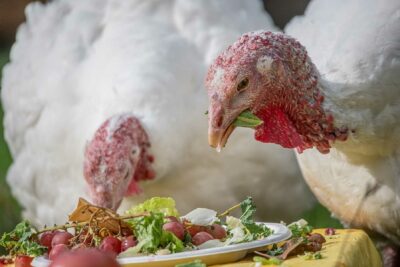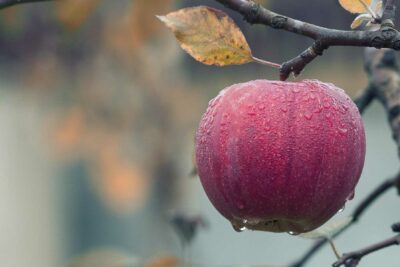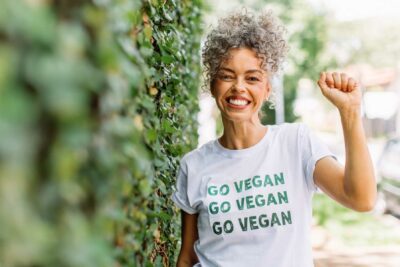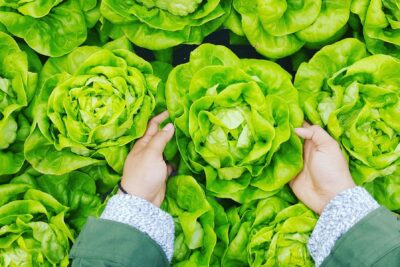There are as many reasons to go vegan as there are vegans. People travel different paths to get here, and they each have their own priorities and preferences. But whether it is for personal, ethical, environmental or other reasons, when we act for the good of one, we act for the good of all.
5 Reasons To Go Vegan
There may be five main reasons that motivate people to move towards a plant based diet but—as you will see—when we dig into those, many more are revealed!
1. Scientific Reasons To Go Vegan
What we eat has a profound impact on the world around us: on the planet, on animals, and on ourselves, our families, and communities. A wealth of scientific evidence is starting to show the extent of the impact of our food choices, and this is encouraging people to make some dietary changes.
Science Says Go Vegan To Prevent Pandemics
In recent times, we have all become much more aware of how pandemics emerge and spread. And we know that factory farms—which is where most meat and eggs come from—are disease factories. This is because these facilities house large numbers of immunocompromised animals in appalling, stressful conditions. There may be no better virus-incubator than modern factory farms.
Science Says Go Vegan To Save Human Lives
Over 66 percent of antibiotics are used in farmed animals, not humans, and that really matters because when we overuse them, we allow antibiotic-resistant superbugs to emerge. In 2019, more than 1.2 million people died from antibiotic-resistant infections, and it contributed to the deaths of millions more. The reason animal farmers use so much antibiotics is because of the appalling conditions they keep farmed animals in.
Science Says Go Vegan To Tackle Climate Change
What we eat has a profound impact on the climate. The production of every food requires land and energy inputs whilst also creating emissions, but animal foods (meat, milk, and eggs) have a much larger impact than almost every plant-based food. That’s why credible institutions like Harvard, Oxford University, and the United Nations are all saying we urgently need to move towards a plant-based diet to help protect our planet.

2. Ethical Reasons To Go Vegan
Many of us hold certain principles dear, but at the same time we may unwittingly be acting against them with the food choices that we make. These principles can relate to how animals are treated, how other people are impacted, and fairness and justice for all.
Animals Are Not Commodities
Animals are not here on the Earth for us, but with us, and their lives are as important to them as ours are to us. Those who love animals, who believe that the stronger harming the weaker is bullying, and that exploiting another being for our own ends is unacceptable, often come to veganism to right these injustices.
Our Food Choices Affect Others
We may do our best to avoid buying garments made in sweatshops or by child labor, but do we ask ourselves the same questions about our food production? For example: animal farmers risk their lives in the slurry pits; slaughterers suffer more with their mental health, including PTSD and PITS; the land needed to produce meat drives Indigenous peoples from their homes; and the emissions from meat and milk production disproportionately affect the world’s poorest.
To Take Only Our Fair Share
Every food has a cost in terms of water, land and energy. When we eat plant-based foods, we can get a lot more food from a lot less land. This means we need less water and fewer chemicals, and more land can be returned to the natural world. Patterns of consumption vary widely around the world, but if everyone consumed the way U.S. citizens do, we would need four more Earths. When we take too much, someone else bears the cost.
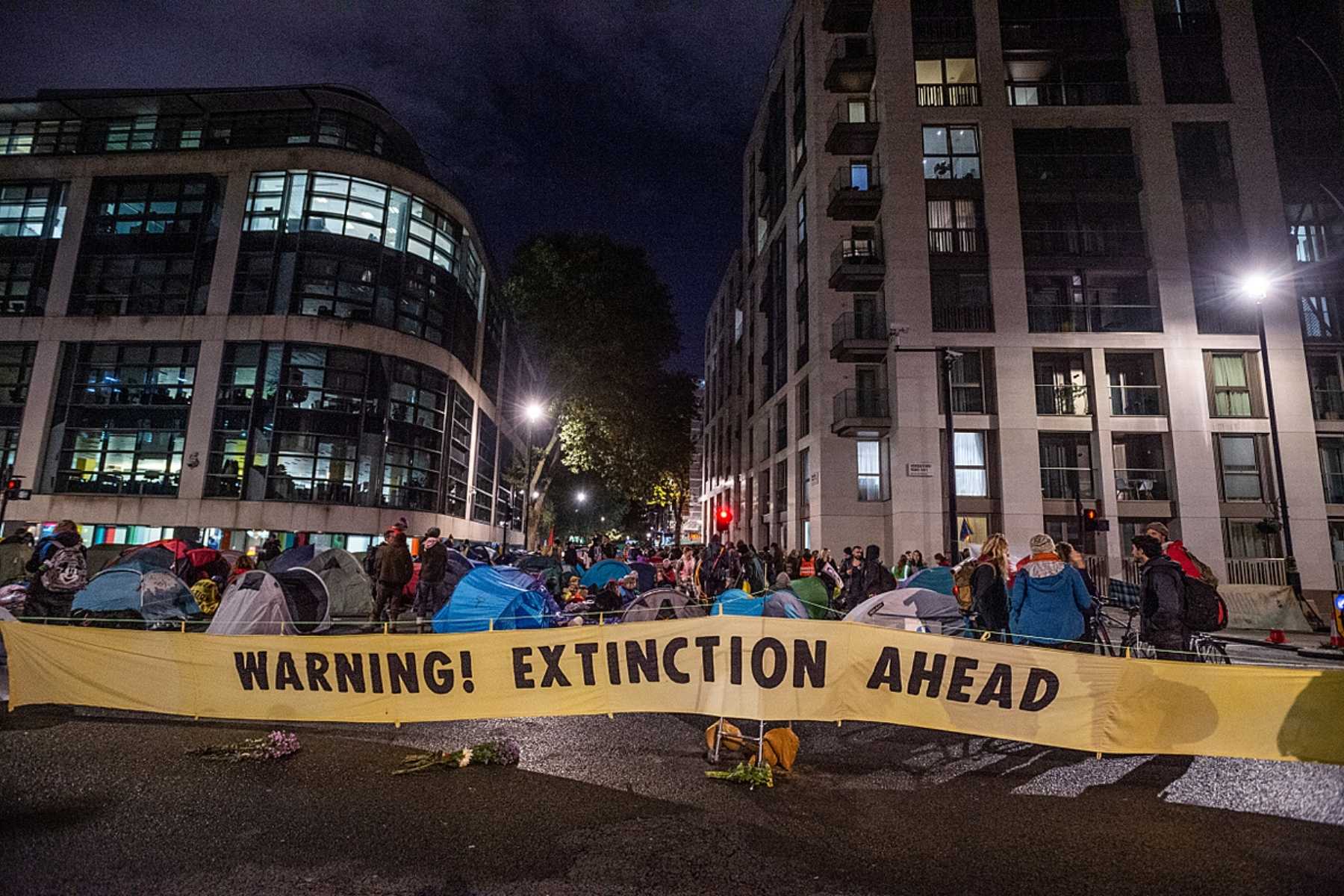
3. Reasons To Go Vegan For The Environment
Ever since the documentary Cowspiracy showed the world how our diets are driving the climate crisis, people have been ditching meat, milk, and eggs, and embracing plant-based foods. But it’s not just about the climate, though that is reason enough. When we eat food that is made from animals (meat) or taken from animals (milk and eggs), we are contributing to multiple serious environmental disasters, which have a profound knock-on effect on people, wild places, and wild animals.
Going Vegan Saves Forests
Because it takes so much land to feed the 80 billion farmed animals on the planet, great swathes of it are taken from the natural world. Often, forests are felled. The farming of cows, predominantly for beef but also for dairy, is the number one cause of deforestation in virtually every Amazon country, and accounts for 80 percent of current deforestation. Another deforestation driver is soy, the majority of which is shipped around the world to be fed to animals incarcerated inside factory farms.
Going Vegan Keeps Our Waters Clean
There are nine times more farmed animals on the planet than people, and they produce an enormous amount of poop. What do we do with it? Some is sprayed on the land but there is just too much of it. So, it is stored in vast “lagoons” to deal with another day, but it leaks out or is deliberately discharged and causing appalling ecological damage. Not only does it get into the air where it causes pollution and respiratory disorders in people, but it gets into rivers where it fuels algal blooms, which decimate aquatic wildlife.
Going Vegan Protect the Oceans
From the rivers, the manure and its pollutants flow to the ocean but some of the immense amount of animal waste is dumped directly into the seas, too. There, it wreaks the same havoc. It fuels the growth of algae which use up all the oxygen in the water, and create ocean dead zones. These are large areas of the ocean where no animal can survive. Ocean dead zones are growing in both number and size.
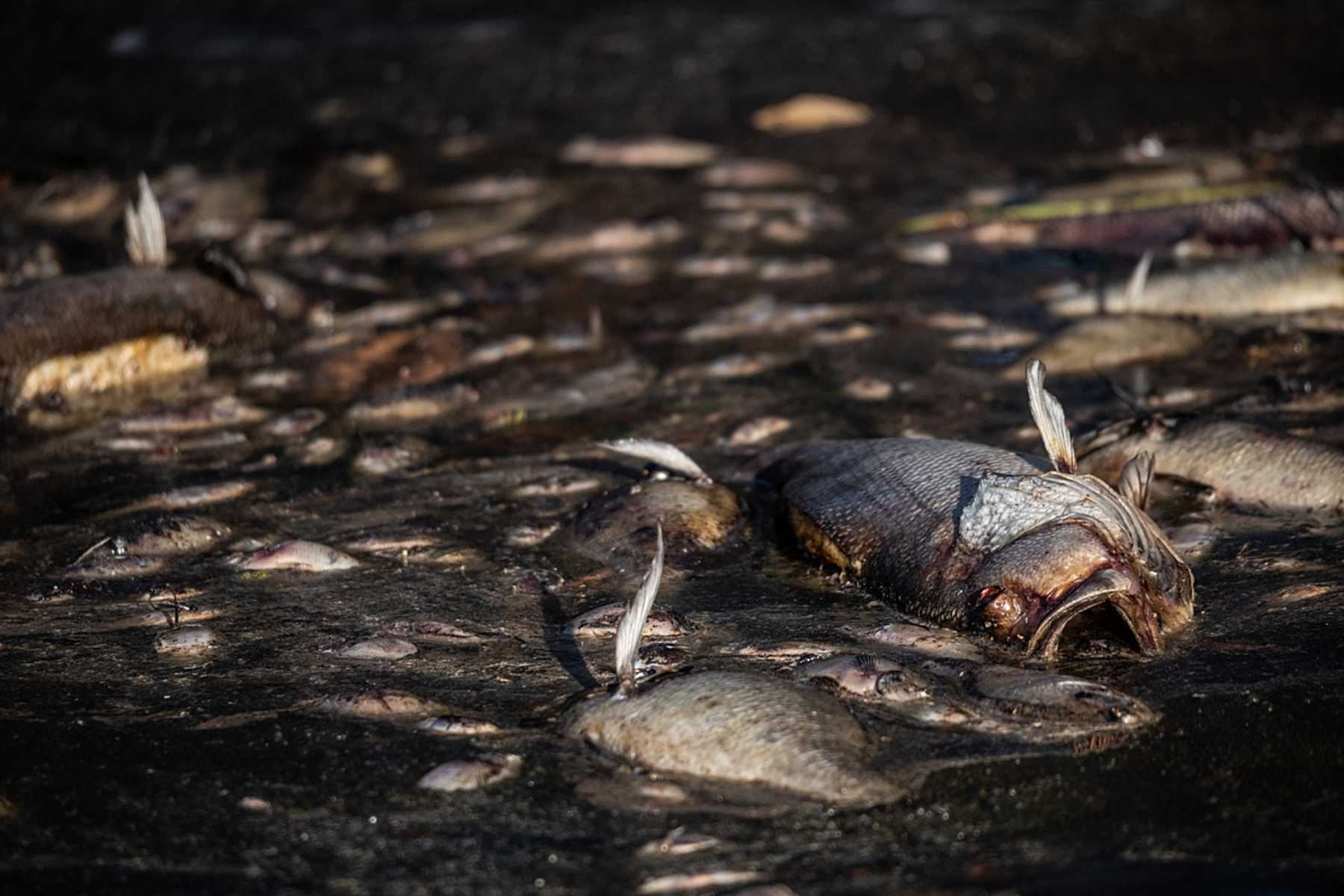
4. Why Go Vegan For Animals?
Ending the suffering of animals is a key reason why people become vegan. The connection between meat and animals is clear, but as people learn about the suffering and slaughter in the milk and egg industries, they are increasingly rejecting those products, too. And it’s not just farmed animals who suffer from our animal-based food choices; eating meat, milk, and eggs is killing wild populations and driving whole species to extinction.
To Spare Cows, Pigs, Chickens and Sheep
When we eat meat, animals pay with their lives. And it is not a question of them having a “happy life and a humane death.” Most farmed animals are reared inside factory farms, where anything that could make their lives worthwhile is denied them. Then comes a horrific journey to the slaughterhouse, and the terrifying ordeal of slaughter. But the same is true in the milk and egg industries, too. The animals are legally mutilated, often caged, and experience severe suffering throughout their lives, only to have their throats cut when they no longer serve our purpose. None of it is necessary. We do not need to eat meat, milk, and eggs.
Going Vegan Saves Wild Animals
All over the world, wild populations are in freefall. Since 1970, humans have wiped out 60 percent of all wild populations, and researchers have been studying to find out exactly what is causing it. They found that the biggest cause was destruction of natural habitats to create farmland (because raising animals for meat and milk requires so much). Killing wildlife to eat was the next biggest cause, and the third was fishing, where the industry is systematically emptying the oceans of life. Going vegan avoids all of these wildlife-destroying practices.
Going Vegan Reduces Wildlife Extinctions
If everybody on Earth switched to a vegan diet, we would need just one-quarter of the farmland we currently use and the rest could return to nature. Just imagine trees, shrubs and native grasslands flourishing and teeming with insects. Bird populations would grow; mammal and reptile populations would grow. If we left the seas alone, aquatic species would recover and find their balance again. But if we don’t change, we will continue to drive wild populations to extinction. The North Atlantic right whale, some porpoises, dolphins and turtles are all critically endangered and could become extinct unless we stop buying and consuming fish. The list of land animals teetering on the brink of extinction is also long and distressing. They need their land but they cannot have it if we are using it to farm animals.
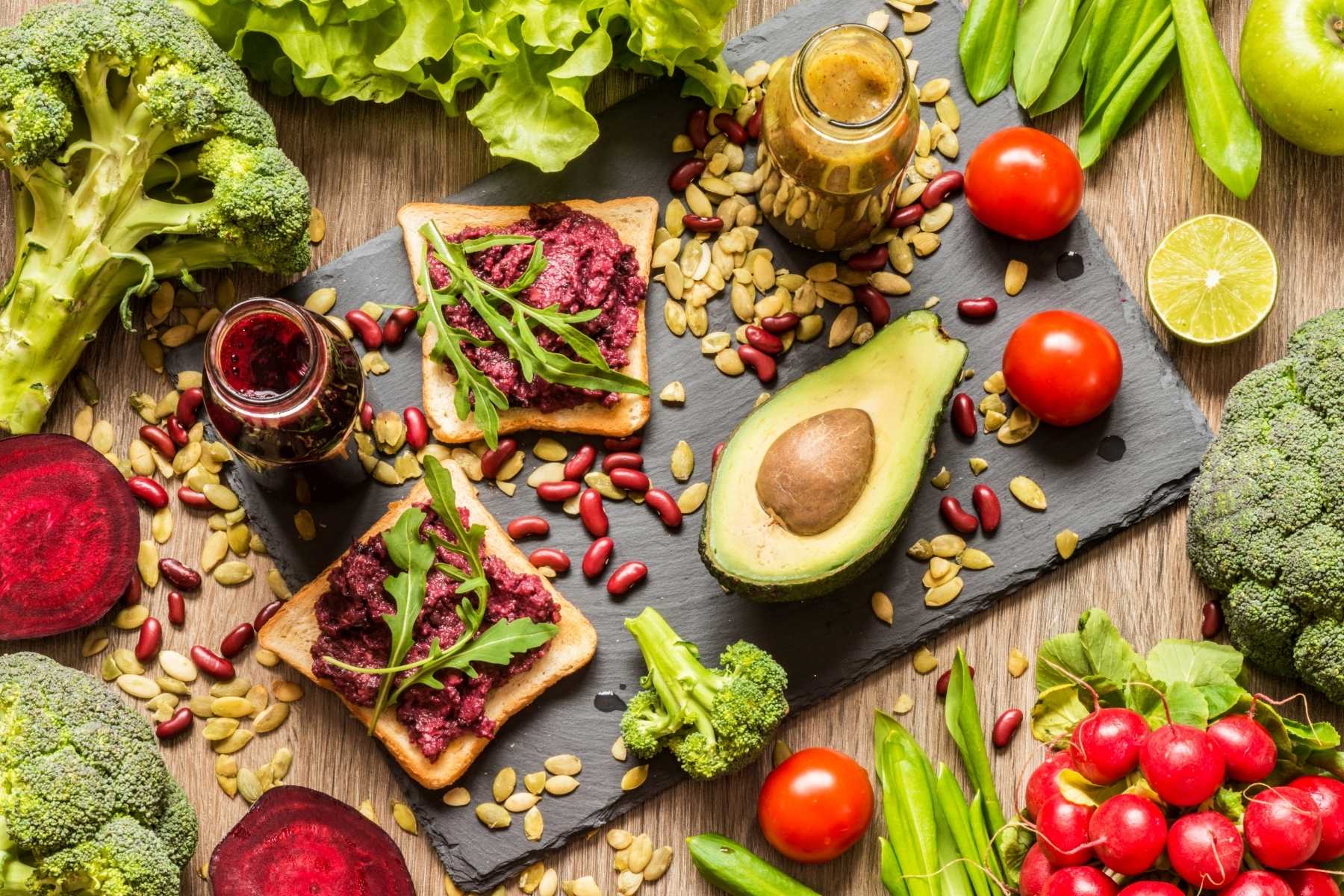
5. Reasons To Go Vegan For Your Health
There are so many health benefits to becoming vegan, and when we eat a whole food plant-based diet, our bodies really thank us for it! Many new vegans experience positive changes almost immediately, from better sleep and more energy to improved digestion and clearer skin. Many find their respiratory problems clear up while others notice an improvement in inflammatory conditions. Not everyone will experience these benefits, of course, but they are so common that many new vegans will. However, it’s in the longer term that the positives really shine through…
Vegans Suffer Less Heart Disease
About 647,000 Americans die from heart disease each year—that’s one in every four deaths—and research consistently shows that eating meat puts our hearts at risk. A 2019 study of 500,000 adults found that for every 100 grams of red or processed meat that individuals consume per day, their risk for heart disease increases by 19 percent. Plant-based diets, however, are associated with a lower risk of heart disease.
Vegans Suffer Less Type 2 Diabetes
More than 30 million Americans live with diabetes and it can lead to heart disease, kidney failure, and blindness. Research shows that higher intakes of red meat and poultry are associated with a significantly increased risk of developing diabetes. Conversely, a plant-based diet can prevent, manage and even reverse type 2 diabetes. A 2003 study found that a plant-based diet controls blood sugar three times more effectively than a traditional diabetes diet.
Being Vegan Protects From Some Cancers
The World Health Organization has confirmed that all processed meat (which includes bacon, hot dogs, ham, chorizo, and salami) is carcinogenic. It also stated that all red meat is ‘probably’ carcinogenic. The strongest evidence for red meat relates to colorectal cancer but there is also evidence of links with pancreatic cancer and prostate cancer. Even a moderate intake of red meat raises the cancer risk. But plant-based foods are cancer-protective. Eating more fruit and vegetables could prevent 14 percent of gastrointestinal cancer deaths worldwide.
Pros And Cons Of Being Vegan
The one con is that it can take a little time to adjust to a fully plant-based diet, but after that, there are only pros! When we eat foods that are good for us, they are also good for animals, other people, and the planet. So our own personal reason for trying vegan doesn’t matter all that much in the greater scheme of things, because everyone benefits from that decision. For those starting out, we recommend people spend a little time to discover their why. That’s because once you know why you are making these changes, it becomes much easier to stick with them, especially during those first few weeks when old habits keep beckoning.

Conclusion
Our food choices have a huge impact on the world around us—on our own health, farmed animals, wildlife, forests, rivers and oceans, and people all over the world. When we realize how connected we all are, and that our fates and well-being are intertwined, we can see just what a profound difference we make when we choose plant based foods. In reality, this can be as simple as choosing a bean burger over a beef burger but that one decision means: no cows were killed, less land was used, no forests were felled, no wildlife was driven to extinction, no rivers were polluted, no seas were left deoxygenated, no antibiotic-resistant superbugs emerged, no one suffered respiratory conditions from air pollution, and your own heart is going to remain healthy.
That’s not a bad outcome simply for eating a tasty burger, is it?
